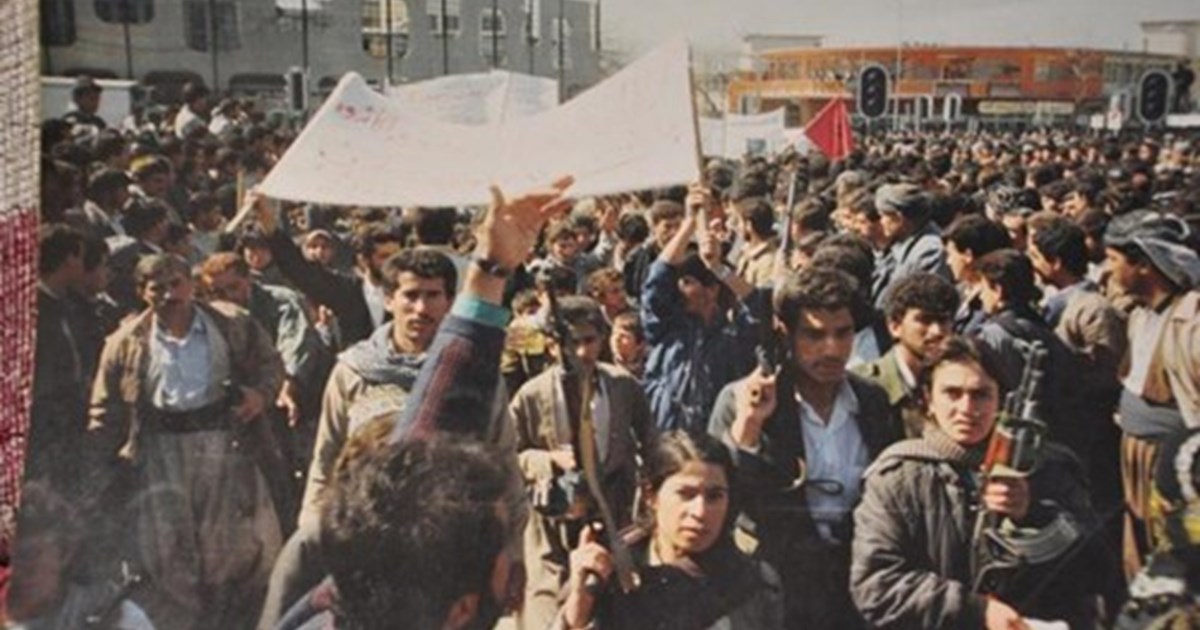History of Parliament

The Kurdistan National Assembly (later renamed parliament) was established in 1992, in the first free and fair elections ever held in the Kurdistan Region or in any part of Iraq. The election was held just a year after the Kurdish Uprising of March 1991, when the people rose up against the Ba'ath regime of Iraqi President Saddam Hussein in the aftermath of the liberation of Kuwait.
The people of Kurdistan, as well as their political parties and leaders, wanted to hold their first ever democratic election, after decades of violent dictatorship under the Iraqi central government. This was made possible by the no-fly zone created by the US, UK and France above the 36th line of latitude, which prevented attacks by Saddam Hussein's forces.
The people were hit by an international UN embargo on all of Iraq, including Kurdistan. Kurdistan also urgently needed an administration and legislature to fill the vacuum when Saddam Hussein withdrew his administration, and placed his own internal embargo on Kurdistan that stopped food and fuel supplies, disconnected electrical power and prevented the movement of people to other parts of the country.
Faced with the administrative vacuum and double embargo, the Kurdistan Front, an alliance of diverse political parties in the Kurdistan Region, decided to hold a general election. Their goal was to establish an administration to provide for essential public services and to meet the basic needs of the people. The population also expressed a strong desire to choose their representatives.
The Kurdistan Front alliance formed a committee of jurists and party representatives to draft the election law, Law No. 1 of 1992, and approved it in on 8 April 1992.
The closing paragraph of the 1992 Election Law (external link) sets out the purpose of holding the elections and establishing Kurdistan’s legislature:
- The belief in democracy, respect for human rights and freedoms as the best governing system.
- The Kurdistan Front’s negotiations with the Ba’ath central government had failed.1
- To fill the administrative vacuum left by the withdrawal of the Iraqi Ba’ath administration, through free, fair and transparent elections, and to maintain the rule of law in the aftermath of the Gulf War.
- A demonstration to the world that the people of Kurdistan in Iraq are capable of self-government.
- To establish institutions based on the separation of the legislative, executive and judicial powers, and an authority to determine the relationship with the central government.
The election, held on 19 May 1992, was the first free and fair parliamentary election in the history of Iraq. A minimum seven percent threshold was set for representation in the parliament2. Voter turnout was very high and the elections were deemed to be free, fair, and democratic by international observers. After decades of dictatorship, the people in Kurdistan were able to vote for their representatives for the first time in their history.
This regional election led to the formation of the first Kurdistan National Assembly (which later changed its name to Parliament) and the establishment of the Kurdistan Regional Government. The leadership and the people of the Kurdistan Region decided to adopt and abide by all Iraqi laws except for those that violated human and universal rights. By 15 July 1992, the Kurdistan National Assembly had convened.
To date there have been five parliaments, following elections in 1992, 2005, 2009, 2013 and 2018:
First term: 1992 to 2001
Transitional term: 2002 to 2004 3
Second term: 2005 to 2008
Third term: 2009 to 2012. In 2009 the Kurdistan National Assembly was renamed the Kurdistan Parliament.
Fourth term: 2013 to 2018
Fifth term: 2019 to 2023
Changes to Parliament
The Election Law, Law No. 1 of 1992, established a minimum of 100 seats in the legislature, and permitted the ethnic and religious minorities to create their own separate electoral party lists. The Christian parties who won the 1992 election within their own community were thus given five seats. Together with the prescribed 100 seats, the first term of Parliament had 105 members.
In March 2009, under Law No. 2 of 2009, several amendments were made to the Kurdistan election law to increase the inclusiveness of all groups. The minimum age of parliamentary candidates was lowered from 30 to 25. The legal minimum quota of female parliamentarians was increased from 25 percent to 30 percent of the legislature. While seats had already been reserved in previous elections for minority communities, for the Christian and Turkmen parties this was increased to five seats each, and one seat for Armenian parties, making a total of 11 seats for the communities and increasing Parliament's total seats to 111. In addition, the name of the legislature was changed from the Kurdistan National Assembly to the Kurdistan Parliament. The Election Law, Law No. 1 of 1992, and amendments to it are available in the Legislation Database in Kurdish (external link).
[1] In the Kurdistan Front alliance’s negotiations with the Ba’ath government through much of 1991, they failed to agree on several issues. The Front suspended the talks in January 1992.
[2] This threshold was lifted in subsequent elections.
[3] The 2002 to 2004 transitional term of Parliament was a lead-up to the unification of the Erbil and Slemani administrations of the KRG under one administration.
Parliament during the Kurdish Civil War and the Washington Peace Agreement
Parliament opposed the four-year civil war that broke out between the two main Kurdistani political parties in 1994. At the start of the conflict, the Speaker of Parliament Jawhar Namiq Salim released a statement opposing the civil war. MPs from both parties held a public protest and a 103-day sit-in. MPs continued to legislate for the Erbil and Slemani government administrations, which were not unified at that time. After the Washington Peace Agreement of 1998, Parliament ratified the accord under Law No. 16 of 2002 (external link).